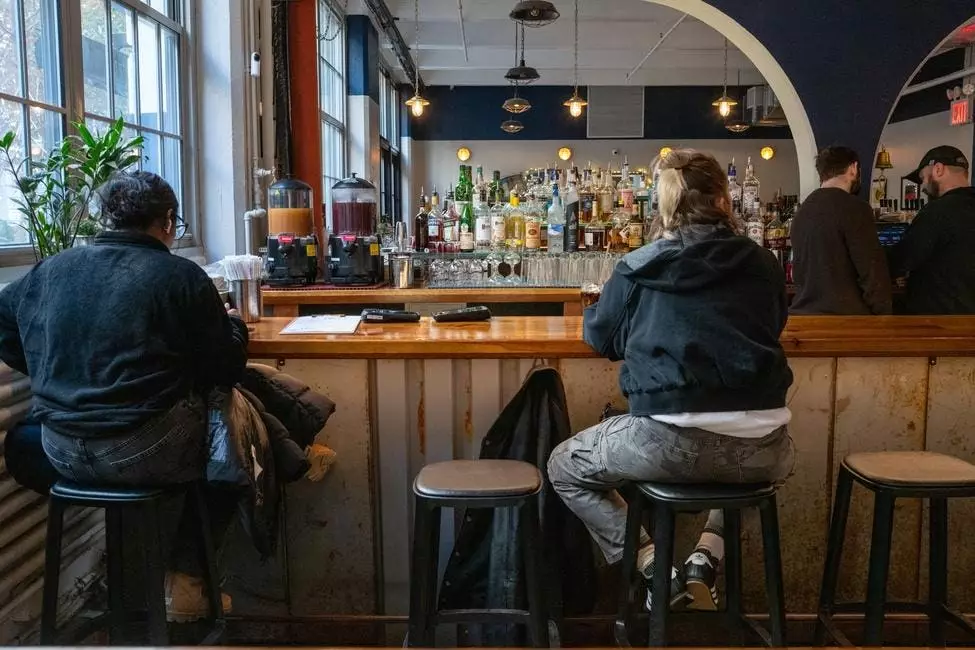Alcohol has long been intertwined with the fabric of American life, featuring prominently in celebrations, social gatherings, and as a symbol of camaraderie. From weddings to tailgating parties, alcohol has played its role as both a celebratory beverage and a social lubricant. However, recent advisories from health officials, particularly those from U.S. Surgeon General Dr. Vivek Murthy, signal a burgeoning awareness that may lead to a significant cultural transformation regarding alcohol consumption. Dr. Murthy’s urgent call to action reflects a deeper understanding of the risks associated with alcohol, particularly its proven connection to cancer and other health ailments.
Dr. Murthy emphatically stated that alcohol is a preventable cause of cancer, accounting for about 100,000 cancer cases and approximately 20,000 cancer-related deaths annually in the United States. To further complicate this issue, less than half of Americans recognize alcohol consumption as a risk factor for cancer. This stems from a longstanding underestimation of alcohol’s health risks, one that needs rectifying through education and a shift in public perception.
As the pandemic forced people indoors, many turned to alcohol as an escape from stress and monotony, leading to a considerable spike in heavy drinking—reported to have increased by over 20%. Yet, as society emerges from the pandemic, new trends are unfolding. Younger generations, particularly Gen Z and Millennials, are gradually redefining their relationship with alcohol. In a notable shift, 61% of Gen Z respondents in a recent study expressed intentions to drink less, a significant rise from the previous year’s 40%. Similarly, Millennials reported a significant reduction in their average weekly alcohol consumption, cutting it by 40%.
This generational shift illustrates a profound realignment of values, as younger individuals prioritize their health, both physically and mentally. The focus has moved away from the celebratory excess often associated with drinking towards a lifestyle that emphasizes wellness, mental clarity, and financial prudence. Engaging in social settings no longer requires an alcoholic beverage in hand; instead, many are exploring the “sober curious” movement. This trend encourages individuals to reconsider the necessity of alcohol in their social lives, embracing a no-rule mentality that allows for conscious decision-making regarding drinking.
In response to the changing attitudes toward alcohol, there has been a marked increase in the availability of non-alcoholic alternatives. Gone are the days when non-drinkers faced limited options at social gatherings, often relegated to soda or water. Today, the market is flourishing with sophisticated mocktails, alcohol-free wines, and zero-proof spirits designed with adult sensibilities in mind. This surge of innovative drinks allows individuals to enjoy social occasions without the effects of alcohol, effectively normalizing non-drinking as a valid choice.
Bars and restaurants are catching up to these evolving preferences, with many now offering expansive menus filled with enticing beverage choices that exclude alcohol. This cultural shift signifies that socializing no longer demands indulging in traditional alcoholic norms; rather, companionship and shared experiences are starring in a new narrative where drink choices are based on personal preference.
Economic conditions also contribute significantly to this changing landscape of alcohol consumption. With inflation and rising costs of living putting a strain on personal finances, people are re-evaluating their spending habits, including indulgences like alcohol. Historical trends show that economic downturns tend to influence consumption patterns, making less expensive options more appealing. Just as seen during the Great Recession, there’s a noticeable shift away from pricier cocktails and wines.
Amid this backdrop, the public health implications of Dr. Murthy’s warnings about alcohol consumption, particularly its association with cancer, have the potential to catalyze further change. Some health experts speculate that we may be on the cusp of a significant movement, akin to the previous anti-smoking campaigns that drastically shifted public behavior and perceptions of smoking.
As we stand on the threshold of this cultural re-evaluation, it is essential to recognize that the way Americans view alcohol is undergoing profound changes. From redefined social rituals to a growing acceptance of alternative beverages, the old norms are being challenged and reshaped. While the drink itself may evolve, the essence of social togetherness—the toasts, the gatherings, the shared moments—will persist.
Ultimately, the conversation surrounding alcohol consumption is about much more than mere beverages; it signifies a collective move toward making informed choices about health and well-being. Whether opting for a complex non-alcoholic drink, exploring THC-infused alternatives, or simply enjoying time with friends over herbal teas, this moment acts as a turning point. As people navigate their social lives with renewed perspectives, one thing is clear: the quest for connection and joy can take many forms—most importantly, forms that embrace wellbeing rather than excess.


Leave a Reply